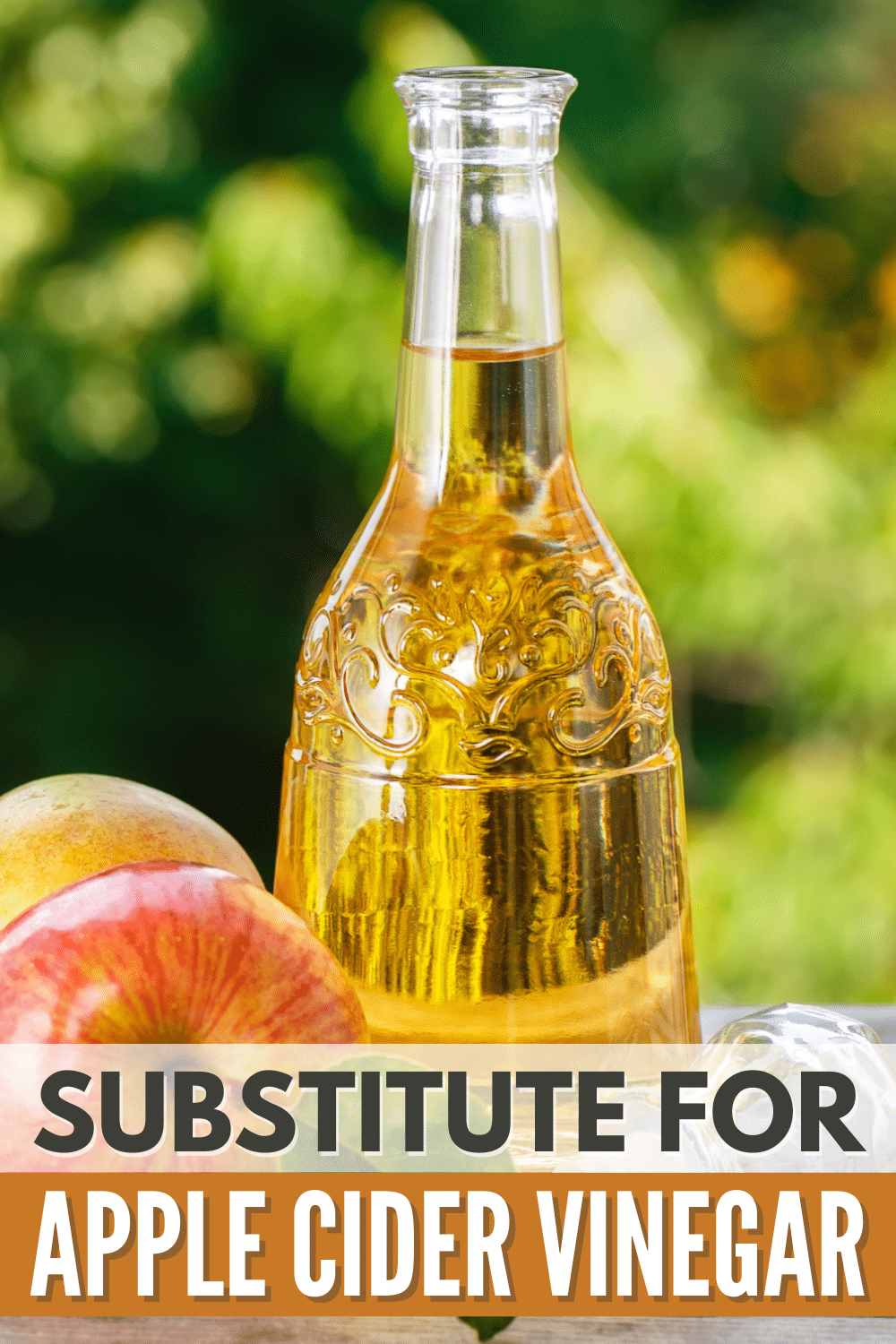Hey mommas! Looking to use a substitute for apple cider vinegar? This ingredient is delicious, healthy, and versatile. I love having it around since I can add it to a lot of dishes. For me, it’s a pantry must-have.
But not everyone is a fan of ACV (apple cider vinegar) due to certain sensitivities. If you’re one of them, you don’t have to miss out on many delicious dishes. There are several incredible ACV alternatives you can use. Read on for some of the best pantry items to replace ACV. Surely, you can find a couple on this list that you’re willing to try.
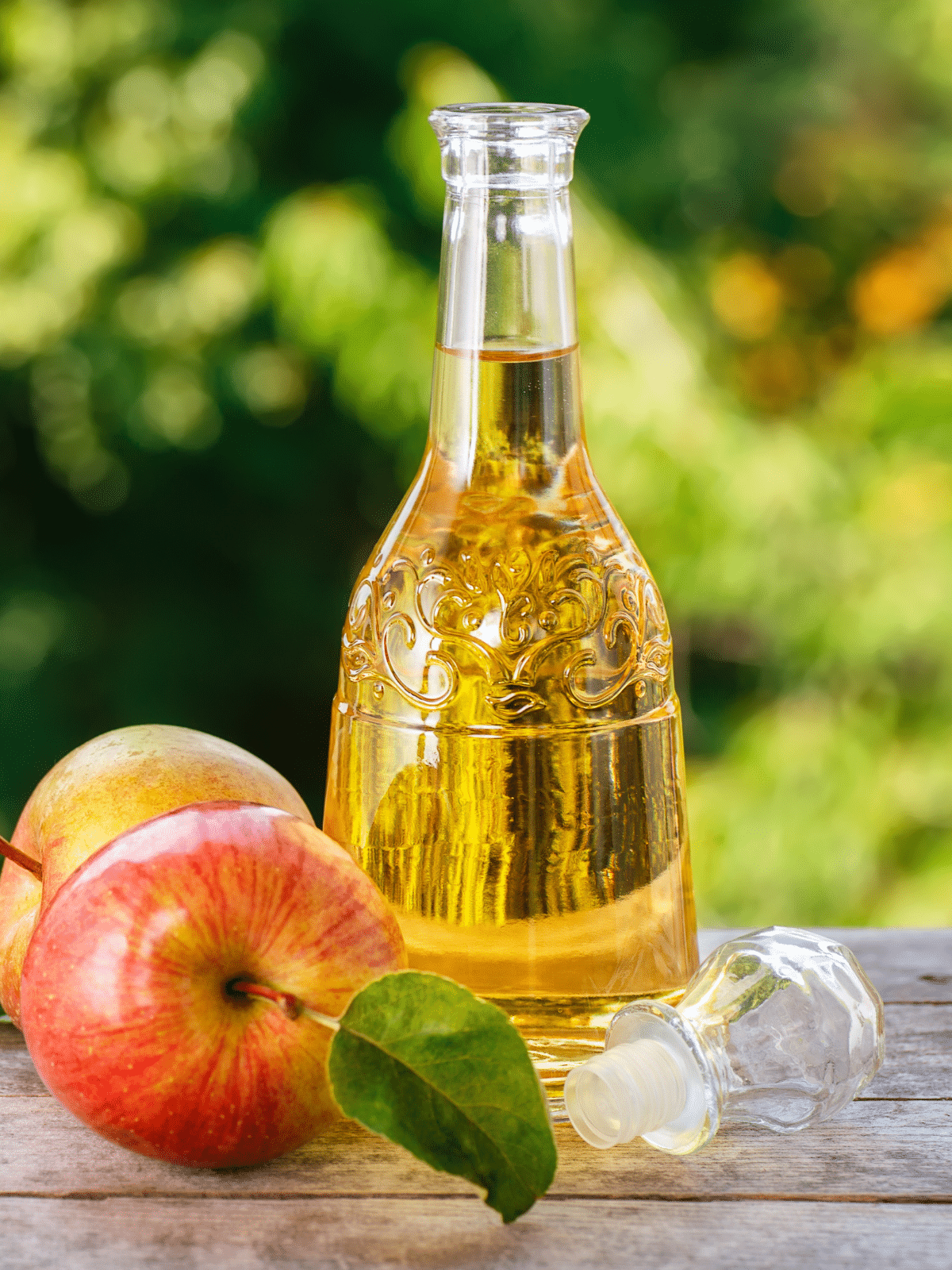
Jump to:
What Is Apple Cider Vinegar?
Apple cider vinegar is made from apple cider that’s fermented with yeast. It’s a versatile pantry item with many health benefits and uses.
Here are some of the most notable ones:
May Help Lower Blood Sugar and Cholesterol
ACV can help you control your blood’s cholesterol and sugar levels. It’s made up of 5-6% acetic acid, a common compound in many types of vinegar. Studies have actually found that acetic acid may help with blood sugar and cholesterol control.
Has Anti-Microbial Properties
Apple cider vinegar is widely known to have anti-microbial properties, which is something you can take advantage of in multiple ways.
First, you can use ACV as a preservative since it can kill off the bacteria that causes your food to spoil quickly. Around the house, you can use apple cider vinegar as a disinfectant and cleaner. Lastly – and this one I’ve tried before – you can use ACV as a natural way to prevent bug bites.
May Help You Lose Weight
There are several research studies talking about ACV’s benefits on weight loss. It turns out that ACV may help you have fewer cravings by making you feel full. By extension, you will eat less and have lower caloric intake.
Why Substitute Apple Cider Vinegar?
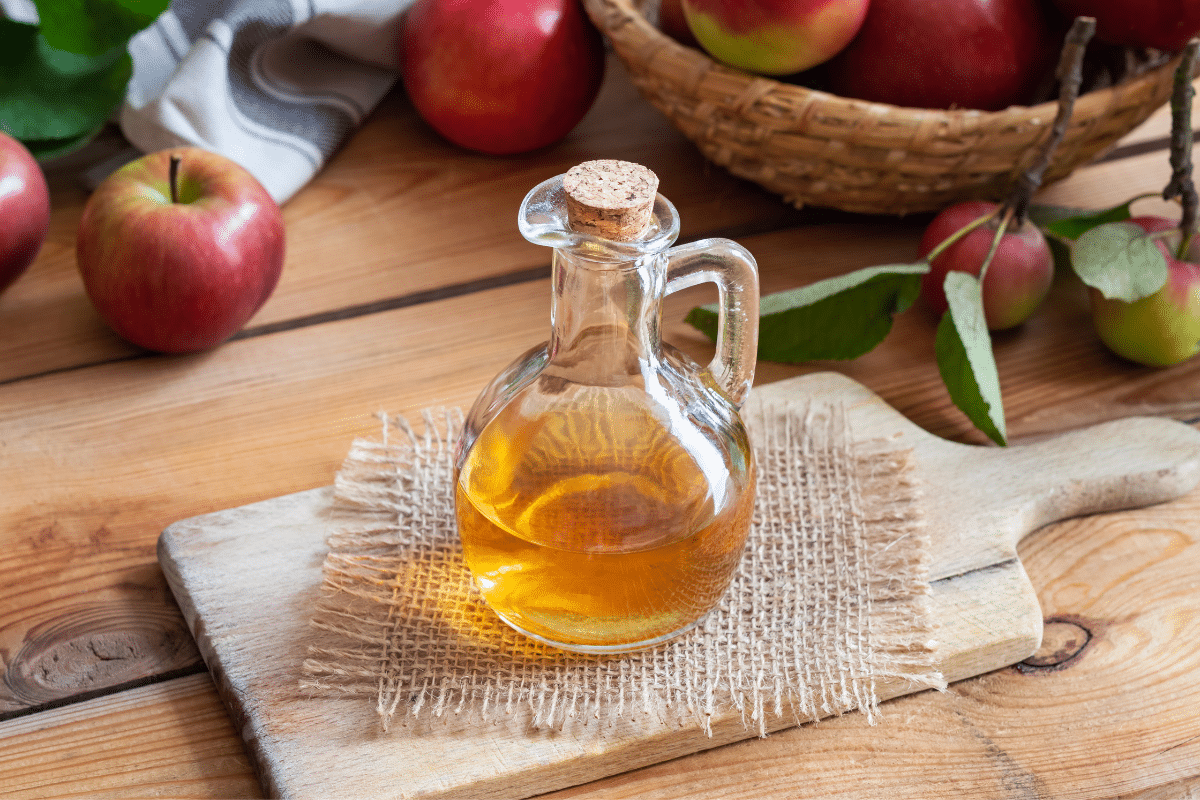
Food Sensitivities and Health Conditions
People with specific food sensitivities and health conditions will want to find an alternative to swap for apple cider vinegar. If you have apple allergies, you should find an alternative that won’t trigger a severe allergic response.
Additionally, those with severe kidney problems may want to avoid ACV. It’s still an acid, and people with this health condition may not have the ability to filter the extra acid from apple cider vinegar properly.
Preference in Taste
Like many vinegar types, ACV tastes sour, but you can still taste fruity flavor notes when you use it. But since different people have different flavor preferences, some would prefer to use something else as an ingredient.
Availability
In the U.S., we normally don’t have to worry about our apple supply, so we also don’t need to worry about running out of ACV in our local stores. However, many places from around the world don’t have the same privilege.
This doesn’t mean they have to skip out on some great recipes with apple cider vinegar, though. That’s what substitutes are for!
Best Apple Cider Vinegar Alternatives
Different Types of Vinegar
If you’re after acidity, you can get apple cider vinegar substitutes with a similar effect. Usually, you can use these kinds of vinegar to replace apple cider vinegar in dressings, in baking, and as a flavoring agent.
1. Champagne Vinegar
Champagne vinegar is one of the best apple cider vinegar substitutes there is! I wish I discovered it earlier. It’s great for soups, stir fry dishes, and sauces, but the whole family loves it most when I use it in fried rice…delicious! For this one, follow a 2:1 ratio of champagne vinegar and apple cider.
2. Sherry Vinegar
Like apple cider, sherry vinegar is another great ACV alternative. It has the same acidity but with a distinct taste. You should be careful in using sherry because it can affect the taste of your dish. Knowing how to balance out the flavor by adding or using less is key!
3. Balsamic Vinegar

Planning to whip up a salad dressing that calls for ACV, but you don’t have any at home? Just use balsamic vinegar, and you’re good to go! Use a bit less of this because it’s sweeter than apple cider vinegar.
4. Red Wine Vinegar and White Wine Vinegar

While most vinegar substitutes will require less, it’s quite the opposite for this one. Red wine or white wine vinegar offers a fruity taste but doesn’t pack a strong flavor. So, you might want to add a bit more to your recipe.
5. Rice Wine Vinegar
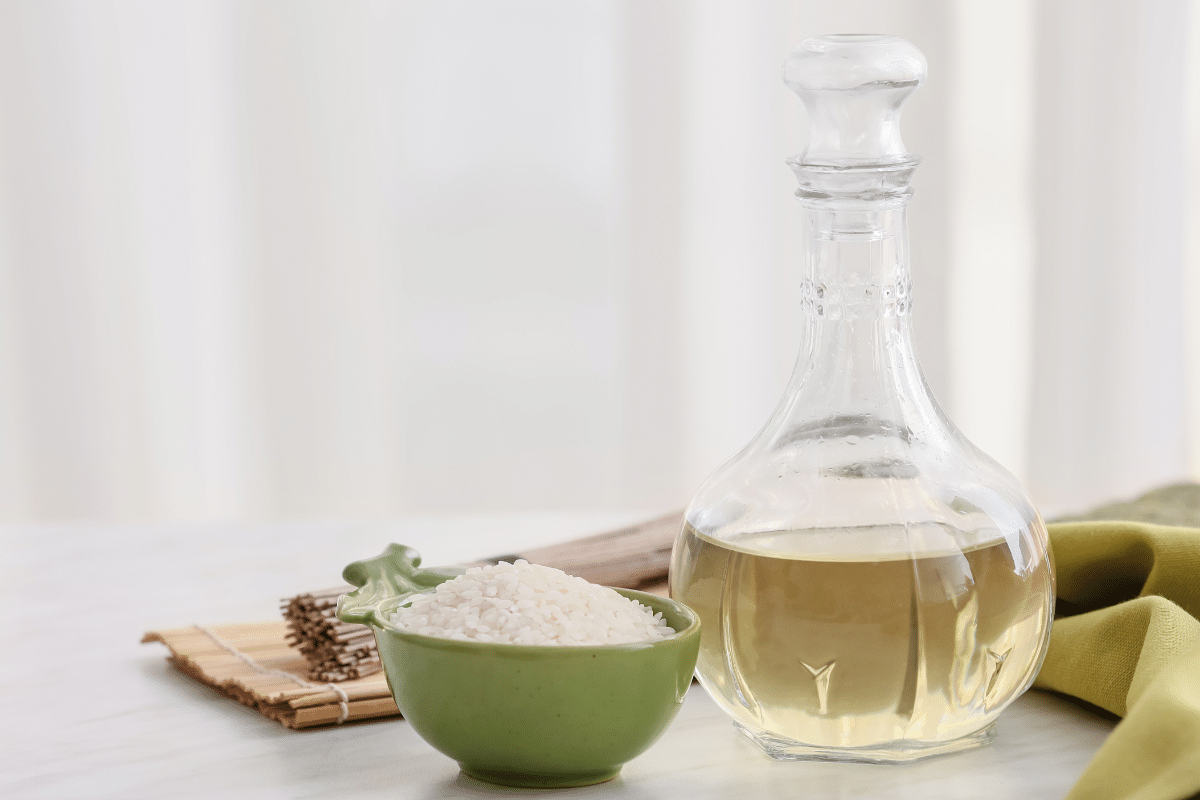
If you’re cooking Asian food, opt for rice wine vinegar or rice vinegar in place of apple cider vinegar. It is less acidic but provides a hint of fruitiness in the dish. It also (almost) has a clear light color, so this won’t affect your dish’s appearance. With this one, you can follow a 1:1 ratio.
6. White Vinegar

Now if you’re looking for a substitute that’s milder than apple cider vinegar, you can go for distilled white vinegar. However, you’ll need to pair it with fruit juice to achieve the taste and flavor of apple cider vinegar. Add the same parts of vinegar and fruit juice.
7. Malt Vinegar

Although malt vinegar isn’t really one of the most popular types of vinegar, if you have it, you can use it in place of apple cider vinegar. Malt vinegar is made from fermented barley, which means that it has a yeasty flavor than a fruity one. Follow a 1:1 ratio when using this suitable substitute.
8. Beer Vinegar
Got beer vinegar lying around the kitchen? This fermented beer can be your alternative to apple cider vinegar. I do want to note that this type of vinegar has the same acidity as the other typical kinds of vinegar. However, its sour taste is definitely stronger, so that’s something to watch out for.
It will be best to add sugar if you use beer vinegar. To achieve that balanced taste, you can follow this ratio — 1 tablespoon of beer vinegar: 1/2 teaspoon of sugar. Now follow a 1:1 ratio when replacing ACV.
Different Types of Fruit Juices
Don’t have apple cider vinegar on hand? You can also use different juices – mainly citrus juices – as apple cider vinegar replacements. Usually, these excellent alternatives are used for their close sour flavor.
9. Apple Juice
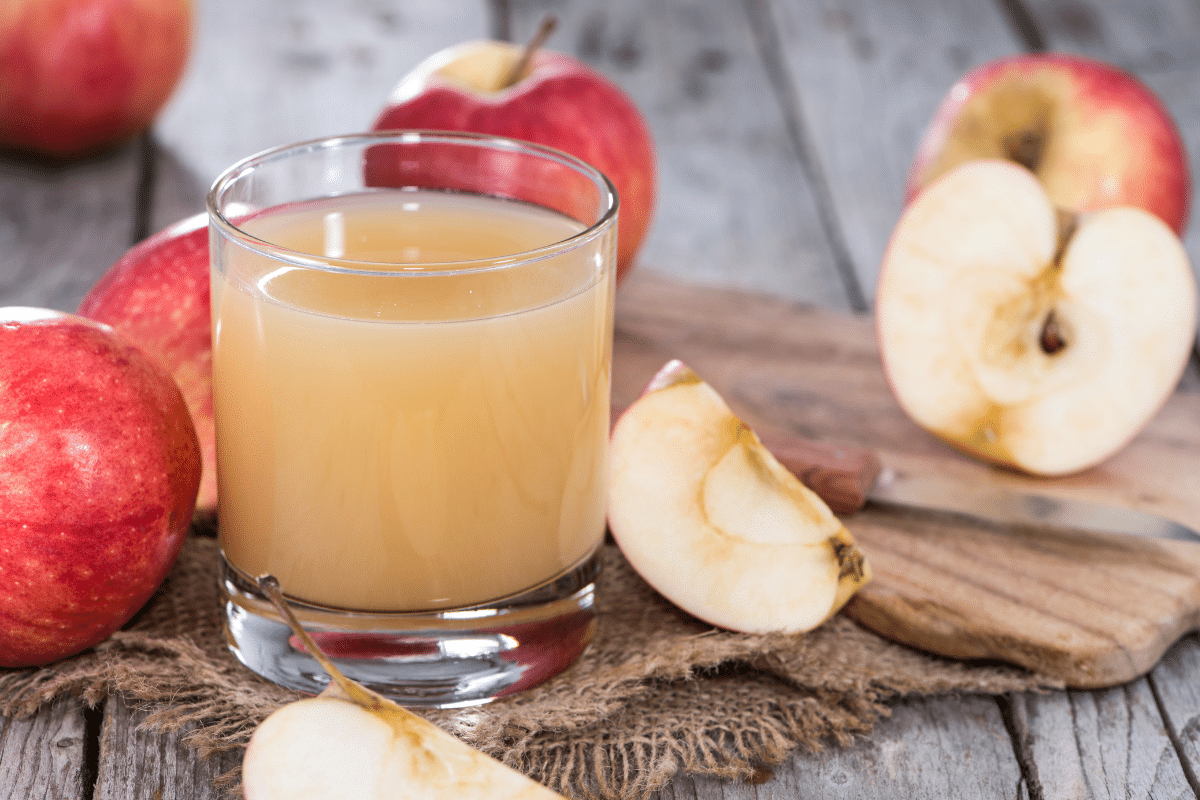
If you’re making a recipe that needs just a tiny hint of apple flavor, I usually suggest ACV. But if you’re in a pinch, unsweetened apple juice is an excellent substitute for apple cider vinegar.
Do remember that apple juice is naturally sweeter and not as sour as ACV. So, if you need acidity in your dish with your apple flavor, another vinegar can be used along with your apple juice.
10. Lemon Juice

If you need a tart and sour substitute for apple cider vinegar in recipes, you can use lemon juice. It offers a fruitiness that makes it a great apple cider vinegar substitute.
Other than dressings and marinades, the level of acidity in lemon juice also makes it a good alternative in baking if you need to leaven your pastries and cakes.
If you want to use this instead of ACV, you just need to substitute it in a 1:1 ratio.
11: Other Citrus Juices
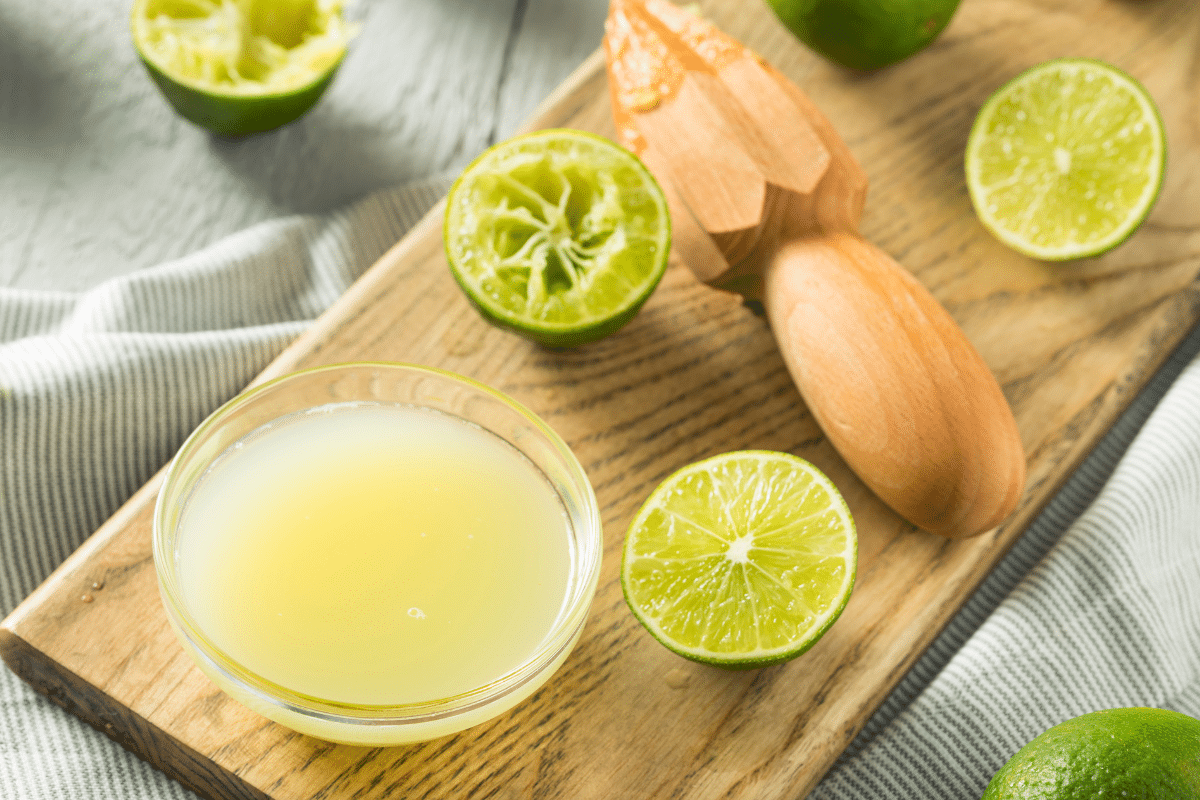
You can also replace ACV with other citrus juices, such as orange juice and lime juice. These two are great substitutes if you want to add a refreshing, fruity flavor note to your recipe. They also work well in salad dressing and if you’re making marinades.
FAQs
Yes, ACV is something you can safely consume daily. I’ve even tried it as a health supplement, which works wonders.
Do remember always to check out the recommended daily amount. For ACV, you can safely take around 1 to 2 tablespoons daily.
If you’re using ACV just for a small hint of apple flavor not essential in the recipe, you probably can, and don’t need a substitution.
Although, if ACV is absolutely needed in the recipe, whether it’s for the acidic taste or its role as a leavening agent, you can only do away with it if you find a substitute for it that will play a similar role.
Usually, a baking recipe that calls for apple cider vinegar uses it as a leavening agent. Since ACV is acidic, it reacts with the base (baking soda), helping the batter rise and become fluffy.
Apart from this, ACV can also be used to enhance flavor.
Using ACV Alternatives
Apple cider vinegar has become a must-have item in most households. Many rave about ACV, myself included, but we also understand that not everyone can use it.

Luckily, in cooking, people always share substitute ideas for ingredients. Hopefully, this article has helped you find wonderful ACV alternatives to dishes you plan to cook, so you’ll never have to miss out on delicious recipes that call for it.
📋 Recipe
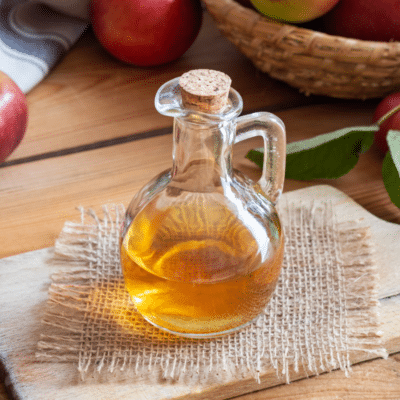
Apple Cider Vinegar Substitute
Ingredients
- Champagne Vinegar
- Sherry Vinegar
- Balsamic Vinegar
- Red Wine Vinegar
- White Wine Vinegar
- Rice Wine Vinegar
- Distilled White Vinegar
- Malt Vinegar
- Beer Vinegar
- Apple Juice
- Lemon Juice
- Orange Juice
- Lime Juice
Instructions
- Choose one or more substitutes from the list above that best matches the role of ACV in your recipe.
- Replace the ACV with the substitute(s) in a 1:1 ratio.


